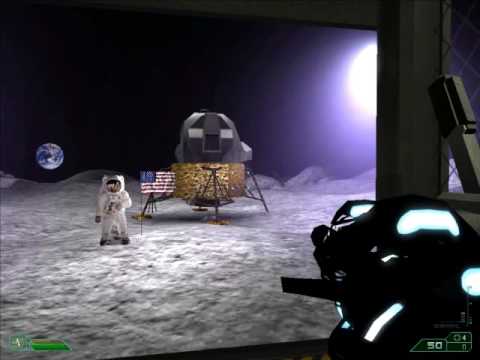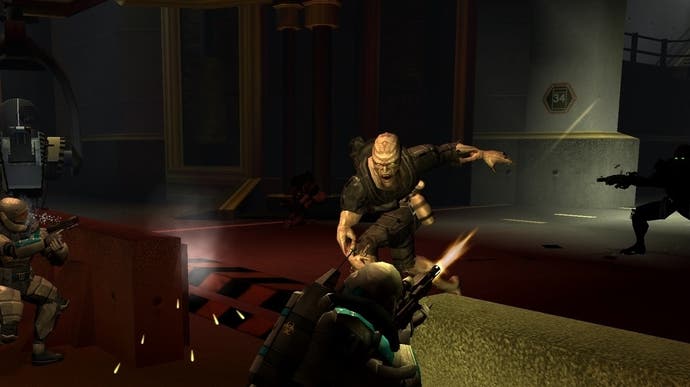The Double-A Team: Area 51 was one of the finest shooters of the PS2 generation
The truth is right here.
Midway. Midway? Midway. That could be the name for this whole series, a tribute to a world of games that companies such as Midway moulded by pushing the medium forward in so many odd ways. Because I can assure you, nobody is really going to obtain this much artistic value from something like Red Dead 2 in ten years' time.
From what I can remember, I treated myself to a fresh new copy of Area 51 as it was released near my birthday. Instead of visiting my local indie games shop, I opted to buy it from the DVD/game rental store next to the Morrison's with the help of my aunt. It's now a tanning salon.
I mention all of this mundanity as a set-up, because the game itself was sort of mind-blowing at the time. When I'm not listening to David Duchovny in XIII, I'm listening to him in Area 51. And Powers Boothe. And Marilyn Manson!
The premise of the game is basically this: you're David Duchovny and despite your kinda-bored tone, you're sent to Area 51 with your buddies to do some alien virus cleanup. You know, normal stuff. Except that this universe does indeed have conspiracies that turn out to be true (Aliens! Fake moon landings! JFK's assassination!) and have been hidden from the public.

The plot has twists featuring the Illuminati, and quickly becomes silly and convoluted, but as a teenager admiring the reflection in the scope as you move around this game? This was frigging awesome! And it's fascinating to see these foreign, alien abilities transforming you, without the sophistication you'd see in later games like Bioshock. We have to remember two things when stepping back to this period: PC and PC-like games, such as Morrowind and Halo, were only recently-proven entities as viable console games.
Some of these abilities you're given seem somewhat minor and cliched now, such as the increased strength, being able to see enemies more easily, and parasitism. These have been refined into role-playing-like elements in today's games. However, the most enjoyable moment comes before the last few missions as you enter deeper into the alien research base underground. The plasma-like lighting and art direction is so hilariously iterative of the first Halo that there's no other option but to applaud this kind of "artistic inspiration". What is meant to be a "King Kong" moment, with stereotypical aliens staring at your presence, ends up being an enjoyable cringe-fest.
This whole setup, of Area 51's brilliant, pure and fun gameplay, would be untenable options for most shooters these days. There are enough conspiracy theorists out there to make it even more difficult than usual for developers to straddle the tongue-in-cheek tone.
One thing that stuck with me after reading Eurogamer's original Area 51 review is, despite accepting its technical achievements and much of the gameplay, the prolific Kristan Reed thinks the truth behind the game's tired premise is probably a boring, sad truth.
I'm inclined to agree, except every time I think about aliens these days, I remember this story about alien alloys - sorry, "foreign objects" - in some warehouse in Las Vegas, having "physical effects" on scientists examining them. Or that UFOs are probably real but the whole world continues all, "who cares dude?"-shoulder-shrug-emoji? None of that is relevant here, where playing through Area 51 again is to revel at the silly but creative ways shooters began to define the mature games market, just months before the first time a Call of Duty title would hit consoles. We know how that ended. I just wish we knew what those alien alloys were.

